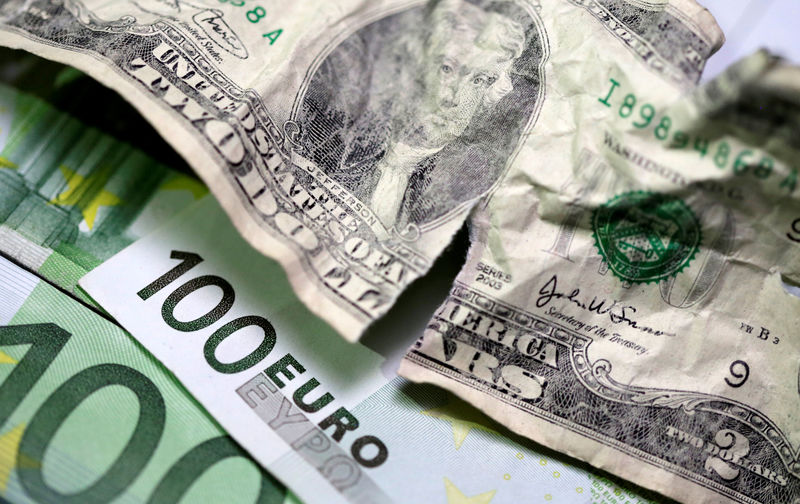United Homes Group stock plunges after Nikki Haley, directors resign
Investing.com - The US dollar slipped lower Tuesday as traders weighed a ratcheting up of trade tensions as well as soft economic activity, while the euro held up despite the U.S. pausing military aid to Ukraine.
At 04:30 ET (09:30 GMT), the Dollar Index, which tracks the greenback against a basket of six other currencies, traded 0.5% lower to 106.160.
Dollar weighed by growth concerns
U.S. President Donald Trump announced late Monday that new 25% tariffs on goods from Mexico and Canada would take effect today, along with a doubling of duties on Chinese goods to 20%, following through on promises made during his election campaign.
This resulted in the Canadian dollar hitting a one-month low, while the Mexican peso slid to its lowest level since Feb. 3.
While these tariff threats have tended to support the dollar, there are also growing concerns that he may have picked the wrong time in the economic cycle to start a global trade war.
Recent data showed a deterioration in U.S. consumer confidence to a 15-month low, sparking concerns over an economic slowdown, while the Atlanta Fed’s GDPNow model now sees annualized growth in the current quarter at -2.8%, reversing from +2.3% last week.
“What seems to be the case today is that Washington is engaging in protectionism very early in its new administration without the domestic back-up,” said analysts at ING, in a note.
“Weak domestic US activity has seen the market reprice to 75bp rather than 50bp of Fed easing this year. This is preventing the dollar from strengthening on the tariff news.”
Speculation is also increasing about the possibility of a massive U.S. overhaul in trade policy, akin to the 1985 Plaza Accord, which is likely to target dollar weakness to boost U.S. trade.
Euro to benefit from increased defence spending?
In Europe, EUR/USD traded 0.3% higher to 1.0520, continuing to rebound from last week’s 2-1/2-week low, even after the U.S. paused military aid to Ukraine following President Trump’s clash with Ukrainian President Volodymyr Zelenskiy last week.
This move is undoubtedly designed to increase the pressure on Zelenskiy to sign a rare minerals deal with the U.S., but it could also result in a rapid increase in defence spending in Europe, potentially having a significant impact on European growth prospects.
Reuters reported over the weekend that there are discussions occurring in Germany over establishing new funds, potentially worth hundreds of billions of euros, dedicated to spending on defense and infrastructure.
There would appear to be a "paradigm shift" for Europe’s largest economy, according to analysts at Deutsche Bank (ETR:DBKGn), as the two funds would jointly amount to roughly 20% of Germany’s gross domestic product.
GBP/USD rose 0.2% to 1.2723, with sterling also helped by the idea of increased defence spending to help boost Ukraine.
U.K. Prime Minister Kier Starmer announced a £1.6 billion missile deal for Ukraine over the weekend, after earlier announcing that U.K. defence spending will rise to 2.5% of national income by 2027 and rise again to 3% "in the next parliament."
Yen gains after Trump criticism
In Asia, USD/JPY dropped 0.4% to 148.96, with the Japanese currency near a four-month high after President Trump said on Monday he told leaders of Japan and China they cannot continue to reduce the value of their currencies.
This could potentially influence the Bank of Japan’s decision on how soon to raise interest rates.
“The shift to defensive FX positioning is helping the Japanese yen. Equally, the threat of a global trade war and what it means for growth prospects can see global interest rates edge closer towards the low rates in Japan - also a yen positive,” ING said.
USD/CNY traded 0.1% lower to 7.2749, with declines in the yuan being limited by government support.
China announced retaliatory trade measures against the U.S. over the increased tariffs, including moves targeting agricultural goods, but such a trade war is unlikely to help the country’s struggling economy.
